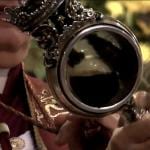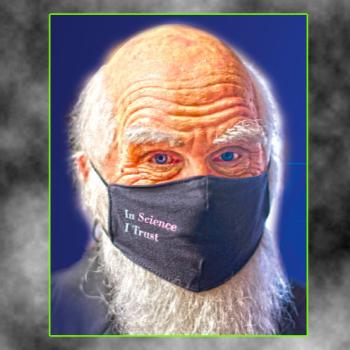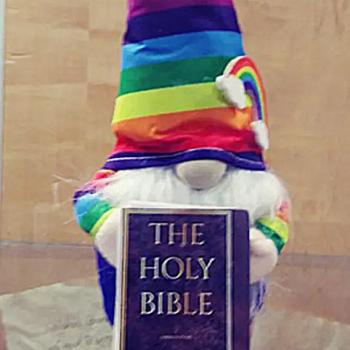UK Prime Minister Boris Johnson yesterday received a letter from Humanists UK demanding that he reconsider his decision to appoint a Christian zealot to the post of Special Global Envoy on the Human Right to Freedom of Religion or Belief (FoRB).
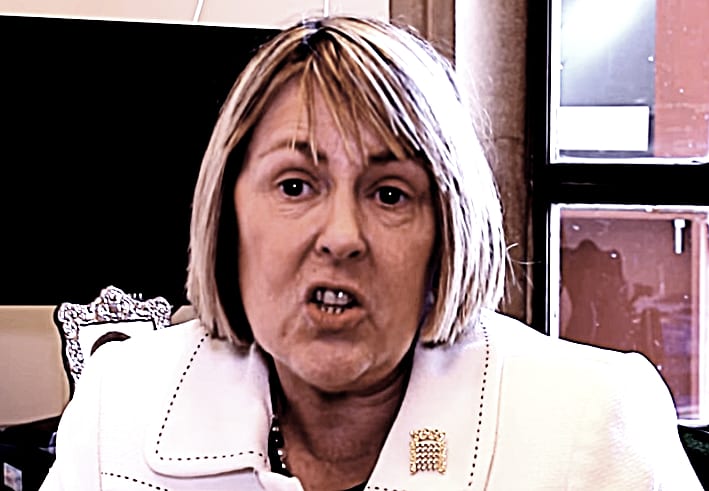
In the letter, Chief Executive of Humanists UK, Andrew Copson points out that Fiona Bruce, above, has been “a committed opponent” of FoRB for the non-religious for many years as well as:
A strong opponent of the human rights of women and the human rights of LGBT people.
The letter continues:
She has actively worked to see the teaching of non-religious worldviews eliminated from the school curriculum. She has worked tirelessly to restrict women’s right to choose an abortion, through private members’ bills, amendments, and as Chair of the ‘Pro-Life’ APPG [All-Party Parliamentary Group].
And she has opposed the expansion of equal rights to LGBT people … Her record shows her not only as an opponent of freedom of belief for the non-religious, but also as someone who does not treat freedom of religion or belief as one of a family of human rights, that are universal, indivisible, and interrelated …
We urge you to think again about this decision.
The Humanist UK website expands its argument against the extremist’s appointment:
On women’s rights, Ms Bruce is, of all MPs, the most prominent and active opponent of abortion – something the UK accepts is a human right for women. She is the Chair of the ‘Pro-Life’ APPG, and has tabled several bills aimed at curtailing Britain’s abortion provisions.
This is very much at odds with the UK Government’s own policy on global women’s rights, in particular as relates to sexual and reproductive health, including where it spends its development aid around the world. In 2019 Ms Bruce voted against decriminalising abortion in Northern Ireland.
On LGBT rights, in 2016 she was on the advisory panel for and spoke at the launch of another report that called for the law to be amended to require employers to accommodate the religious beliefs of employees, even if that results in discrimination against others. For example, it argued against the judgment in the case of the Christian B&B owners who weren’t allowed to refuse accommodation to a same-sex couple, and that of the Christian registrar who wasn’t allowed to refuse to perform civil partnership ceremonies.
The statutory primacy that this would give to the prejudices of religious people is incompatible with the human rights framework of which FoRB is a part. Ms Bruce also voted numerous times in Parliament in 2013, 2014, and 2019 against extending the civil right to marriage to same-sex couples, both in England and Wales, and in Northern Ireland.
Her behaviour on the human rights of the non-religious includes:
• Taking action to block the teaching of non-religious worldviews in English schools, which courts have said is required by the human right to FoRB and which treaty bodies such as the OSCE, of which the UK is a member, have made clear is part and parcel of FoRB.
• Prior to that, in 2013, she lobbied Department of Education ministers against the REC’s curriculum framework for RE at key stage 1-3, opposing its equal inclusion of non-religious worldviews as it is of the major religions.
• And in 2014 she similarly lobbied ministers in opposition to the inclusion of non-religious worldviews in GCSE and A level RS.
• In 2016 Fiona hosted the parliamentary launch of a report advocating that the then-mooted new Bill of Rights for the UK must be “based on Christianity”.
• In 2018 she signed an early day motion calling for conscience clauses that allow medical professionals to opt out of performing abortions, on the grounds of religion, to be expanded to other procedures. This could well prevent people from accessing medical care, which could be a violation of their right to life.
• Also in 2018, she signed an early day motion calling on the House of Commons to encourage people to pray more, so that they ‘[could] be closer to God’ – which, if it did, would be a violation of citizens’ right to freedom of religion or belief.
• And in 2015 she signed an early day motion in favour of compulsory worship in schools, calling on the House of Commons to ‘reaffirm the position that currently exists which teaches children the importance of acknowledging God.’ This is a violation of young people’s freedom of religion or belief.
Copson commented:
We are not alarmed by Fiona Bruce’s appointment because we hold any personal animus against her, but because her record both shows her to be an opponent of freedom of belief for the non-religious, and as someone who does not treat freedom of religion or belief as one of a family of human rights that are universal, indivisible, and interrelated.
Meanwhile Premier Christian News reports that Bruce says she intends challenging governments who oppress people of faith. She told Premier that she was:
Passionate about challenging governments and authorities across the world to allow their own people to speak of their faith and to hold their beliefs freely.
Bruce said that the role was hugely important in advocating not only for freedom of belief, but also for the upholding of several other fundamental human rights.
Wherever freedom of belief is under attack, other human rights are under attack as well. You will see where freedom of belief is attacked, that people risk losing their jobs, their homes, and their livelihoods.
It’s such a fundamental human right. And that’s why it’s so important for us in this country here where we have the privilege of such freedoms to stand up for those across the world who don’t have them.
And then came the tiresome prayer bit:
I would be grateful for people’s prayers for this role, and I am honoured to be given this opportunity to serve. There is much to do, and I want to place my post at the service of some of the most vulnerable people across the world.
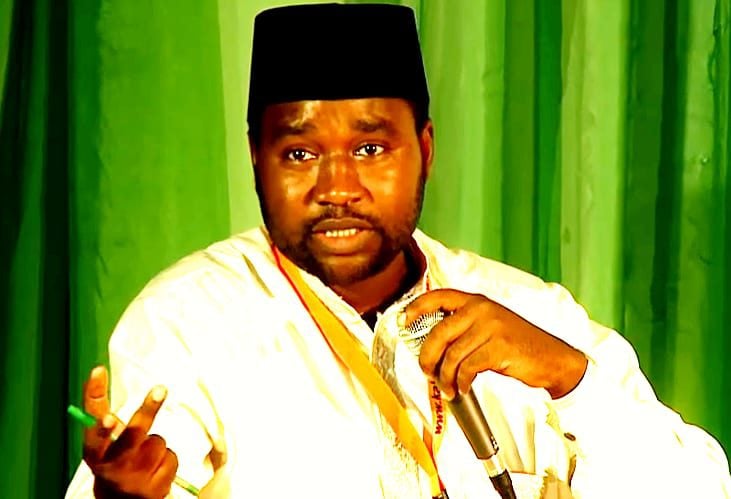
She rattled off the names of some persecuted Christians but signally failed to mention the plight of humanist Mubarak Bala, above.
Bala, President of the Humanist Association of Nigeria, was arrested on April 28 in connection with a Facebook post. He was subsequently detained without charge for more than seven months. Bala’s lawyers, who only gained access to their client in October, filed a fundamental rights petition before the Abuja High Court challenging the legality of Bala’s ongoing detention and arrest.
Humanists International, which launched an international campaign to have him freed, said it believed Mubarak Bala had been being targeted for:
The peaceful exercise of his rights to freedom of expression and religion or belief.
Yesterday (Monday), HI joyfully announced that a judge at the High Court in Abuja, Nigeria, ruled that Bala should be immediately released from detention in Kano State, where he has been held since April 2020.
The judge ruled Bala’s continuous incarceration was illegal and ordered his immediate release. The decision follows a “fundamental rights” petition detailing how Bala has been detained without charge for more than seven months. For five months he was denied access to his legal representatives.
The Court also awarded 250,000 Naira (around $500) against the respondents.
Humanists International said it is supporting Bala’s legal team in Nigeria, and is in touch with them to understand the impact of this ruling, and what effect it will have in practice.
Nonetheless the organisation repeated its demand that Bala should be released immediately and without delay to a safe location.
Copson, who is also President of Humanists International, said yesterday:
Today’s ruling by the High Court in Abuja is a victory for the human rights of all citizens in Nigeria. It is time our colleague Mubarak Bala was released immediately and unconditionally and we call upon leaders in Nigeria to respect due process and the rule of law.
Leo Igwe, who has been coordinating much of the campaign to free Mubarak in Nigeria, said:
This is welcome news, and we are cautiously optimistic about what it means. It is now imperative that the legal authorities in Nigeria comply with this ruling.

 I’d love a cup of coffee
I’d love a cup of coffee